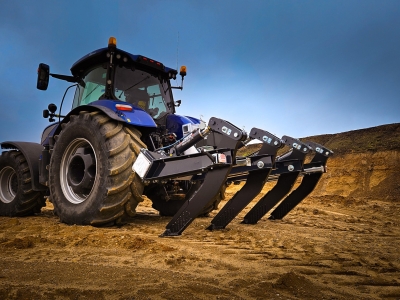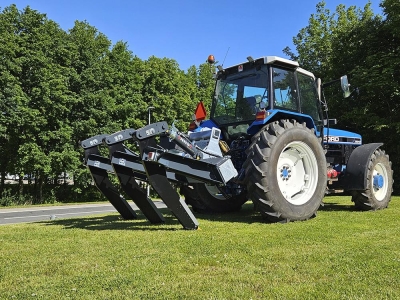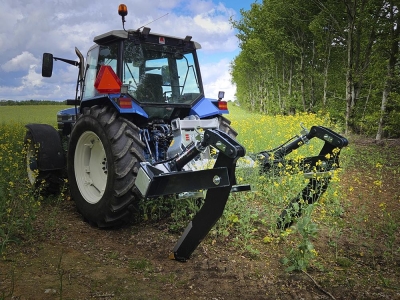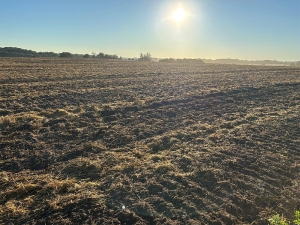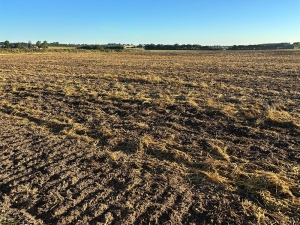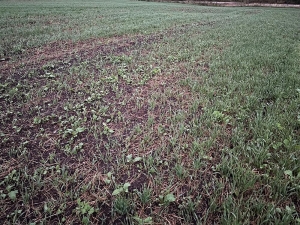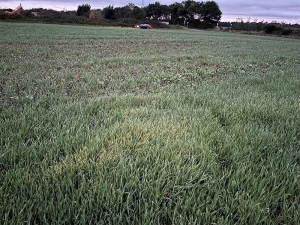Description of the area: Problematic field, filled after gravel pit mining. The field is approx. 3 hectares, where cultivation is hindered due to a very water-rich cultivation layer. This means that the field's passability is very poor even with longer dry weather periods. The wet cultivation layer hinders passability, but not cultivation on the field, which looks fine. The soil type is clay. Soil category: JB5-6 The field has just been harvested, spring wheat with really good cultivation. Objective for the field: The field must be made roadworthy so that care is possible all year round
|
Date: 16. August 2025 Full subsoiling/ melioration being carried out. Machine: T4 Observation during operation: The tractor has difficulty getting wheel grip due to the very moist cultivation layer. |
|
Date: 18. August 2025 Follow-up: The field appears dry and homogeneous. Feedback from the customer, Frede Mikkelsen: "Yesterday we were able to drive on the wet spot without any problems" (spot = the transverse edge) |
|
Date: 10. September 2025 Follow-up: |
